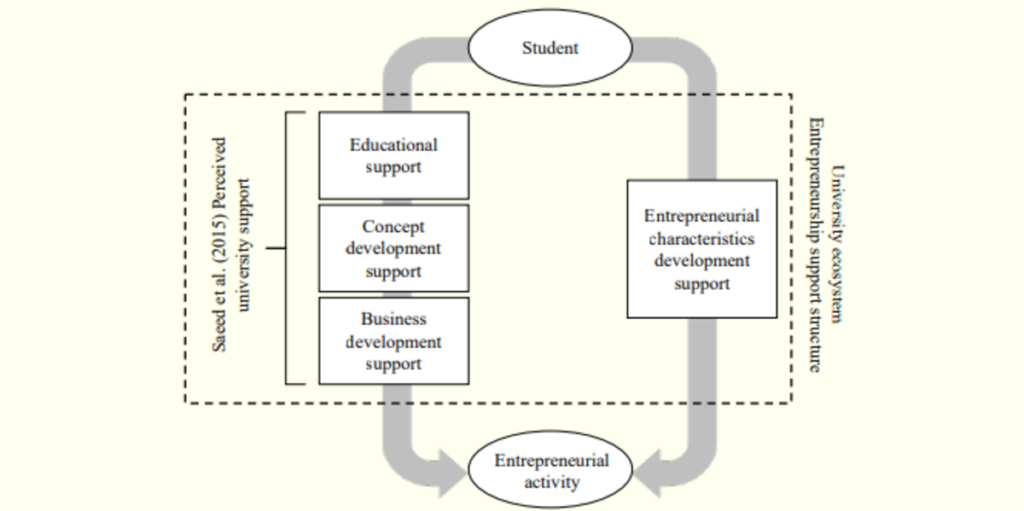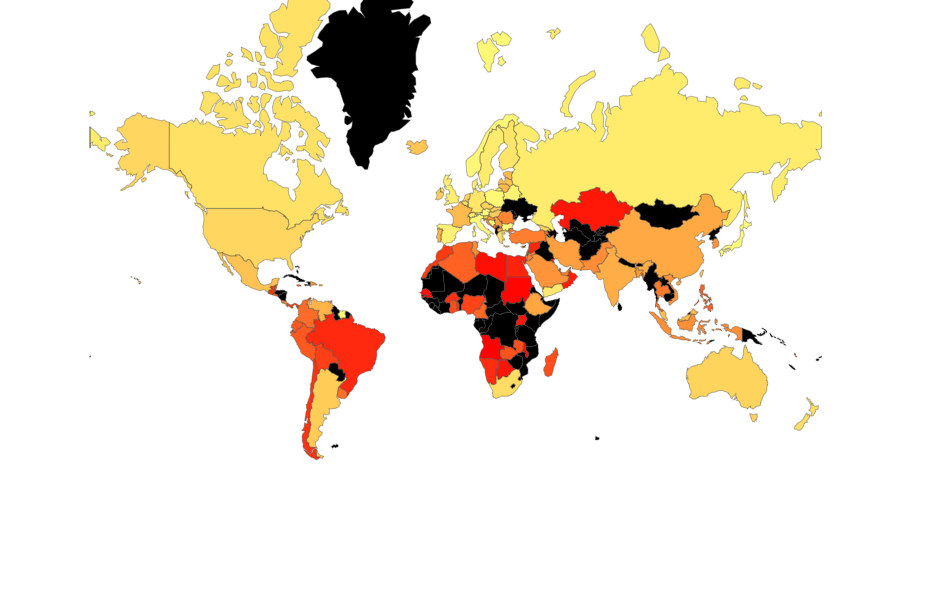
Author: Guilherme Cavalcante Silva / Article in Portuguese available here
Years have passed, a pandemic has come, but one thing has not changed in Brazil: the level of entrepreneurial intention. Even though the number of established entrepreneurs in the country decreased in 2020 (from 16.1% in 2019 to 8.7% in 2020), the rate of early-stage entrepreneurial activity (slightly) increased, rising from 23.3% to 23.4%, according to the Global Entrepreneurship Monitor (GEM). The data refer to the percentage of the population registered as early-stage or established entrepreneurs.
When we bring the intention to become an entrepreneur to the table, the data become even more emphatic. More than half of the Brazilian population (52.7%) intends to start their own business within three years, a rate that stood at 30% in 2019 – Brazil is one of the global leaders in that particular ranking. Considering that scenario, one question pops up: how to take advantage of these numbers and boast entrepreneurship in the country? The answer is not easy and involves the government sector as well as other areas. One of them is the university sector, one of the major elements of the entrepreneurial ecosystem.

Intrigued with the topic, Matheus Campos, a post-doctoral researcher at the Innovation Systems, Strategies and Policy (InSySPo) program at Unicamp dedicated his doctoral research to the study of the relationship between the university environment and the development of entrepreneurial characteristics. Recently, he published an article co-authored with researchers Gustavo Salati and Ana Carolina Spatti (both also from Unicamp) in the Brazilian Administration Review (BAR), presenting the results of an evaluative model used to understand the different ways in which the environment of Brazilian major public universities impacts the development of entrepreneurial characteristics in students. On a deeper level, the article (titled “Do University Ecosystems Impact Student’s Entrepreneurial Behavior?“) investigates the very way in which university and entrepreneurship interact.
The authors created a conceptual model of analysis, and extracted data from seven Brazilian public universities (Amazonas State University, Federal University of Campo Grande, University of Brasilia, University of Campinas, University of São Paulo, Federal University of Technology – Paraná, and Federal University of Rio Grande do Sul). At first, results showed what studies in the field already knew: universities have an influence on the development of entrepreneurial intention (intention to start a business) by students. However, the scope of such influence is much smaller than previously thought. “What our study has shown is that the most important role of the university is not incentivising the student to start a business, but fostering the development of entrepreneurial characteristics“, Campos concluded. In other words, motivational training, courses, and actions focused on the student creating companies in the future, although important, are less effective than an education focused on entrepreneurial characteristics, such as the recognition of opportunities, perseverance, and the ability to offer innovative solutions. After all, one of the findings of the study was that in the universities surveyed, entrepreneurial intention was much more related to the students’ own characteristics than to university actions in that sense.
The study adds to other researches in the “entrepreneurship ecosystem” field, which evaluates entrepreneurial activity in its connection to different social, political, economic, and educational factors – variables that go beyond the “four walls” of companies and their financial and material resources. “Even something like students’ intention to become entrepreneurs is related to things as distinct as their geographical location, i.e. whether this particular student is in the North/Northeast or South/Southeast part of Brazil, as our study has shown,” Spatti points out. “For one student, a higher level of training will consequently generate a greater stimulus to entrepreneurship; for another, with the same level of training, there will be no room for intention to start a business for a myriad of other variables such as higher competitiveness in major cities, for example,” Salati adds. Besides geographical aspects, the availability of human capital, funding, public policies, market accessibility, local culture, and the presence of universities in the region are some of the other pillars of the entrepreneurial ecosystem.
In the more specific context of universities, several factors influence students’ decision to become entrepreneurs. As mentioned before, one of them is the development of entrepreneurial characteristics, which directly impact the entrepreneurial mentality of students. On the other hand, factors such as “support for starting a business” resulted in negative weights in the sample. “In global rankings of entrepreneurial intention, we [Brazil] are always at the top. But at the same time, paradoxically, there is still a certain cultural block in the country regarding the relationship between companies and universities, and that affects entrepreneurial outcomes,” Salati reflects. “Research is pretty established in showing that if the orientation of the university is to prepare for the job market, the student will follow that direction. If there are straight contacts with business, start-ups and patenting, their tendency is to follow this path,” Campos concludes. With the exception of institutions such as the University of São Paulo (USP) and University of Campinas (Unicamp) – both stand out in terms of university-industry relationship, private investment, and patenting, the Brazilian scenario is still one of scarce investments in R&D (around 1% of the GDP, a percentage that is much higher in developed countries) and little interactions with private enterprises.
The research is an indication that a more intense entrepreneurial activity in Brazil might not come from a frenzy about entrepreneurship in the universities’ classroom context or from the mere reproduction of “certified models” from North American or European institutions. “Our findings point out that Brazilian universities are very good at teaching and offering classes, lectures, courses and workshops on entrepreneurship, but lack support mechanisms to help students effectively open a firm. All of this is a reflection of a broader culture both inside and outside the university involving entrepreneurship that widens the gap between education and businesses,” Campos reflects.
The full article is available here.
